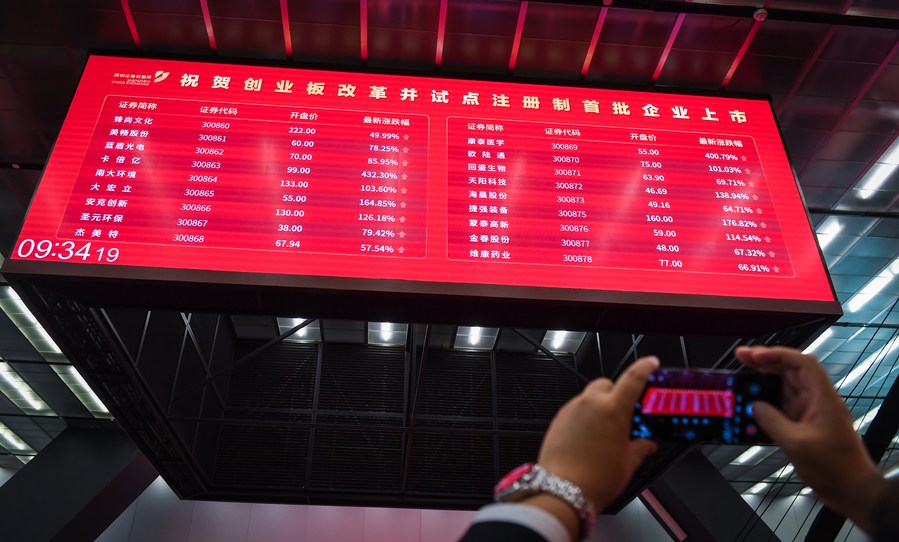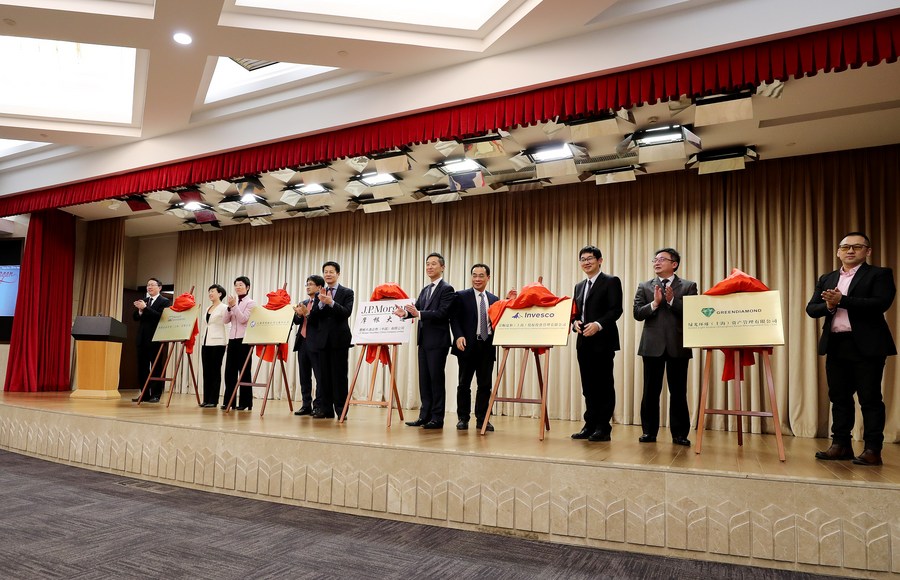— The Chinese stock market kicked off the first trading day of the Year of the Ox with widespread gains.
— As China steps up capital market reforms, Chinese stocks and bonds will become increasingly attractive to both domestic and international investors.
— China’s financial opening up is running at full tilt despite the changing international environment and coronavirus-induced shocks.
The Chinese stock market kicked off the first trading day of the Year of the Ox with widespread gains, as the country’s ongoing capital market reforms added to investor confidence.
The benchmark Shanghai Composite Index opened 1.81 percent higher while the Shenzhen Component Index jumped 1.97 percent at opening.
The ChiNext Index, tracking China’s NASDAQ-style board of growth enterprises, was up 1.82 percent to open at 3,475.89 points Thursday.

As the country steps up capital market reforms, Chinese stocks and bonds will become increasingly attractive to both domestic and international investors, analysts say.
MARKET REFORM
The Year of the Ox by the Chinese lunar calendar is likely to see accelerated capital market reforms. One major change is the way that companies are listed and delisted.
Prior to 2019, initial public offerings (IPO) were run under an approval-based mechanism, in which securities regulators decided in large part the pricing and offering scale of companies prior to listings.
Meanwhile, it was rare for companies to be delisted once they completed the process of going public, creating many so-called “zombie companies” that would drag down the overall quality of the capital market.
To tackle such inefficiencies, China stepped up efforts to push the registration-based IPO reform in the past few years, allowing the market to play a bigger role in deciding the pricing and value of innovative firms.
The reform was first launched at the Shanghai Stock Exchange’s sci-tech innovation board in 2019 and expanded to the ChiNext board in 2020, while a registration-based issuance mechanism was also introduced in the country’s corporate bond market in March last year.

Building on these efforts, the country will further improve the matching rules for the registration-based IPO mechanism and create favorable conditions for the mechanism to be implemented on all boards, the China Securities Regulatory Commission said during a work conference outlining the key tasks for 2021.
As China expands the reform to the whole A-share market, the number of IPOs will increase with greater efficiency, said Dong Dengxin, director of the Institute of Finance and Securities at Wuhan University of Science and Technology.
CITIC Securities predicted that the registration-based IPO mechanism will be utilized in the country’s main board in the first half of 2021, cutting the average approval time to about 60 days from 490 days previously.
However, the streamlined procedures do not mean relaxed regulatory oversight, Dong said, citing intensified on-site inspections by regulators this year to crack down on illegal conduct.
To enhance the quality of public firms, the country also revised delisting rules in December last year, clarifying conditions that would trigger the forced exit of firms.
Such reforms would further boost the investment value of the A-share market and make it more attractive to foreign investors, analysts say.
GREATER APPEAL
China’s capital market is gaining international appeal as the country’s financial opening up is running at full tilt despite the changing international environment and coronavirus-induced shocks.
As part of the opening-up measures, the country lifted quota restrictions on two major inbound investment schemes in June last year and allowed institutional investors broader investment scope with revised rules introduced in September, which have guided more foreign investment into China’s financial market.
Net inflows of funds through “northbound trading,” or money invested from Hong Kong into the Chinese mainland through the stock connect programs, exceeded 200 billion yuan (around 31 billion U.S. dollars) last year.
China’s stock market managed to secure spectacular gains while foreign investors are keen to capture a share of that growth. The benchmark Shanghai Composite Index gained 13.87 percent in 2020, while the ChiNext Index, tracking China’s NASDAQ-style board of growth enterprises, surged nearly 65 percent.
In addition, China’s bond market saw net inflows of overseas funds totaling 186.1 billion U.S. dollars in 2020, indicating overseas investors’ bullish sentiment toward China’s securities market.
With opening up on the fast track, China’s stocks and bonds have been included in main global indexes, such as the MSCI, FTSE Russell, S&P Dow Jones and Bloomberg Barclays index, and their weights are steadily increasing.
In 2020, the country also showed its receptivity to foreign financial institutions by removing limits on foreign ownership of futures, securities and mutual fund management, which has inspired such institutions to set up wholly owned subsidiaries and better tap the Chinese market.

“One hundred percent ownership of our franchise on the mainland represents a significant commitment to and investment in China,” Goldman Sachs said in a memo. It pointed to “ongoing reforms underway in China’s capital markets, continued robust economic growth and the expanding needs of increasingly sophisticated clients.”
While China’s GDP accounts for some 16 percent of the world’s total, Chinese assets only account for some 3 percent to 5 percent of the portfolios of overseas institutional investors, indicating great potential for global investors to step up holdings of Chinese bonds and stocks, said Zhang Yidong, an analyst with Industrial Securities.
In 2021, China’s stock market is expected to see net inflows of funds through “northbound trading” exceed 35 billion U.S. dollars, and the Hushen 300 index is estimated to gain a return of around 16 percent, said Liu Jinjin, chief China equity strategist at Goldman Sachs.









